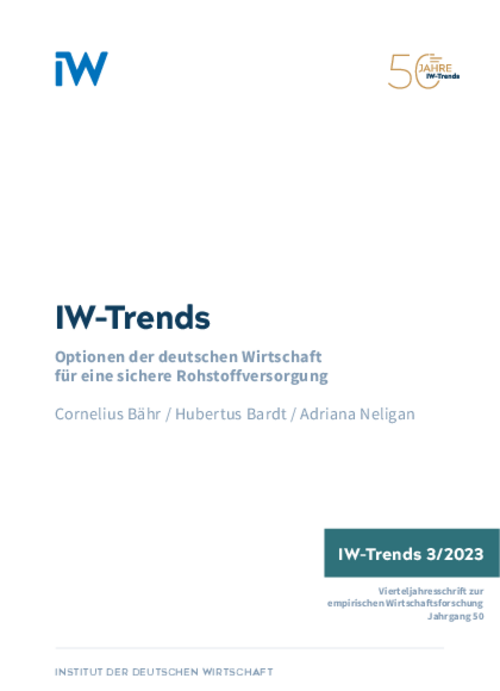In recent years German industry has seen a rise in the risks attached to its procurement of raw materials.

German Industry's Options for a Secure Supply of Raw Materials

In recent years German industry has seen a rise in the risks attached to its procurement of raw materials.
The increase in political risks has been particularly steep, while the danger of price volatility has generally declined. The supply of those raw materials which are rapidly gaining in importance for the technologies needed to pursue digitalisation and the environmental transformation – especially lithium, manganese, aluminium and cobalt for batteries, and tantalum and gallium for other electronic components – has been subject to particularly dramatic increases in risk. Metals are currently being fully imported into Germany so that, despite the potential for European mineral extraction and expanded recycling, imports remain a central component of secure supply. Policymakers at both the national and European levels are currently taking further steps to guarantee the supply of raw materials by encouraging local mining, the diversification of supply chains, the development of an efficient recycling sector and international networking. However, manufacturing industry itself is also active. According to a recent wave of the IW Future Panel, 90 per cent of the companies affected are implementing their own measures to secure raw materials, a proportion similar to that recorded ten years ago. Of particular importance are classic instruments such as improving material efficiency, concluding long-term supply contracts and broadening the range of suppliers. However, the most innovative measures, such as recycling and research and development, are still the preserve of large companies

German Industry's Options for a Secure Supply of Raw Materials

More on the topic

Climate Clubs as a Lightning Rod for Tensions in Trade and Industrial Competitiveness
The Paris Agreement has established a transformative paradigm. While this transformation will create winners and losers, it now seems increasingly clear that overall, there are tremendous opportunities.
IW
Infrastructure: The Next German Challenge?
Closed bridges, outdated railway control centres, missing high-voltage power lines between north and south, as well as dead zones in the mobile network. In recent years, bad news about the German infrastructure has been piling up.
IW